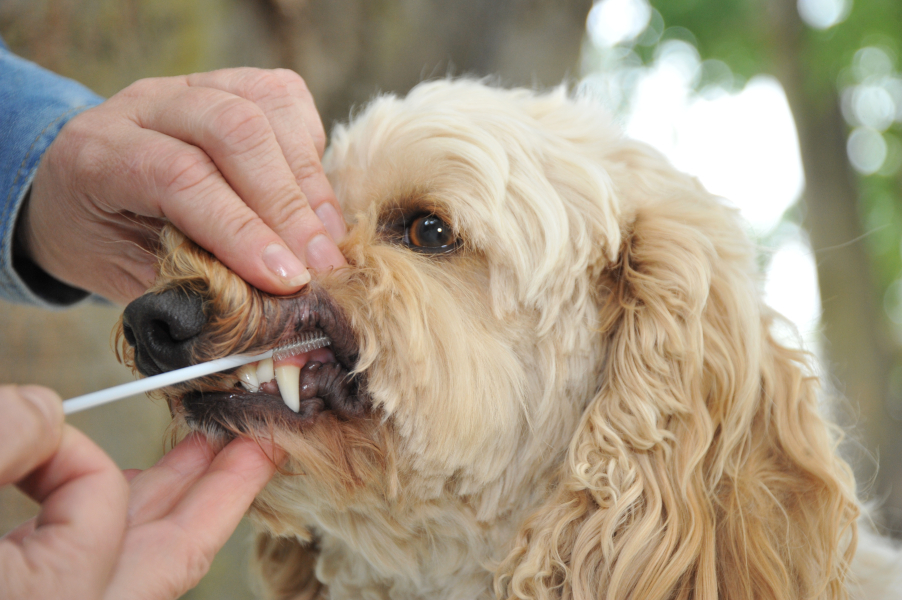Quick Summary
Click here for Price and Turnaround Time
Phenotype: Inherited myopathy of Great Danes (IMGD) is a rapidly progressive muscle myopathy with an age of onset around six months. Affected dogs exhibit exercise intolerance and progressive muscle atrophy. Research data suggest that only 20% of affected dogs survive to adulthood with acceptable quality of life.
Mode of Inheritance: Autosomal recessive
Alleles: N = Normal, IM = Inherited myopathy of Great Danes
Breeds appropriate for testing: Great Dane
Explanation of Results:
- Dogs with N/N genotype will not have inherited myopathy of Great Danes and cannot transmit this variant to their offspring.
- Dogs with N/IM genotype will not be affected by inherited myopathy of Great Danes, but are carriers. They will transmit this inherited myopathy variant to 50% of their offspring. Matings between two carriers are predicted to produce 25% inherited myopathy-affected puppies.
- Dogs with IM/IM genotype will have inherited myopathy of Great Danes.
Results of this test can be submitted to the OFA (Orthopedic Foundation for Animals)
Sample Collection
Dog DNA tests are carried out using cells brushed from your dog's cheeks and gums. The preferred cytology brushes are sent to you by mail, or you may provide your own brushes. For accepted alternative brushes, click here
We recommend waiting until puppies are at least three weeks old before testing.

Step-By-Step:
- Make sure the dog has not had anything to eat or drink for at least 1 hour prior to collecting sample.
- When swabbing puppies, isolate each puppy from the mother, littermates and any shared toys for 1 hour prior to swabbing. Puppies should not have nursed or eaten for 1 hour prior to collecting sample.
- If collecting samples from more than one dog, make sure to sample one dog at a time and wash your hands before swabbing another dog.
- Label brush sleeve with name or ID of dog to be sampled.
- Open brush sleeve by arrow and remove one brush by its handle.
- Place bristle head between the dog’s gums and cheek and press lightly on the outside of the cheek while rubbing or rotating the brush back and forth for 15 seconds.
- Wave the brush in the air for 20 seconds to air dry.
- Insert brush back into sleeve.
- Repeat steps 5 - 8 for each unused brush in sleeve on a fresh area of cheek and gums. Make sure to use and return all brushes sent by the VGL. In most cases, it will be 3 brushes per dog. If using interdental gum brushes, please note that the VGL requires 4 brushes per dog and only moderate or wide interdental gum brushes are accepted.
- Do not seal brushes in sleeve.
- Place all samples in an envelope and return to the address provided.
ATTENTION:
- Do not collect saliva/drool – the key to obtaining a good sample is getting cheek cells on the swab
- Do not rub swab on the dog’s tongue or teeth – this will result in poor quality sample
- Do not collect a sample from a puppy that has recently nursed – the mother’s genetic material can rub off on the puppy’s mouth and contaminate the sample
Inherited myopathy of Great Danes (IMGD) is a rapidly progressive muscle myopathy with an age of onset around six months. The disease is inherited in an autosomal recessive fashion thus two copies of the IMGD mutation are needed for a dog to be affected.
IMGD results from a single base change in the bridging integrator 1 (BIN1) gene. Affected dogs exhibit exercise intolerance and progressive muscle atrophy. Research data suggest that only 20% of affected dogs survive to adulthood with acceptable quality of life. Dogs with one normal and one mutated BIN1 gene (carriers) are unaffected, but breeding two carriers together would be predicted to produce 25% affected offspring and 50% carriers.
Testing for IMGD assists owners and breeders in identifying affected and carrier dogs. Breeders can use results from the test as a tool for selection of mating pairs to avoid producing affected dogs.
